Business Monday: Zen Garden opens in Pāhoa during pandemic with retreat center, treehouse, rooms
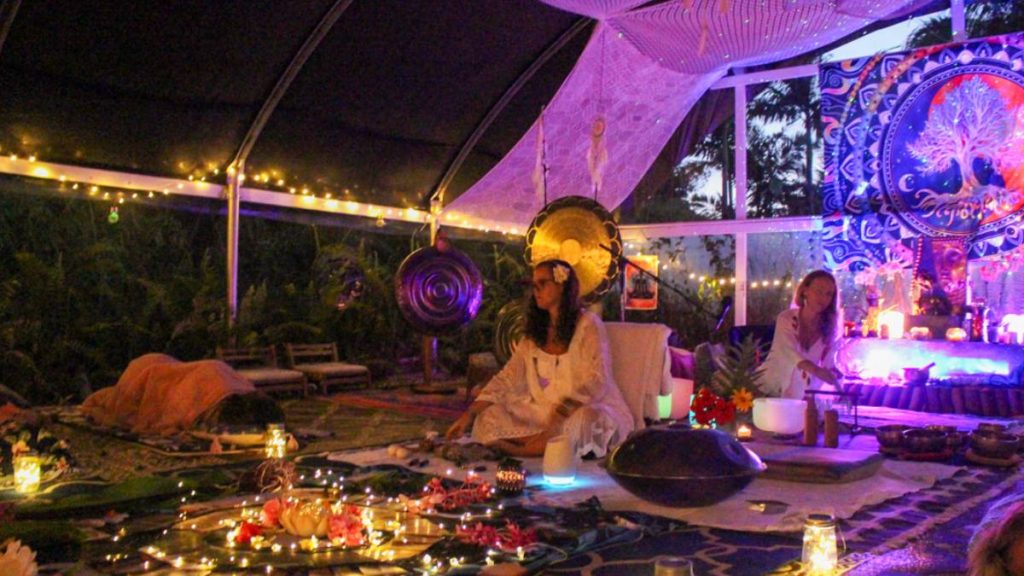
As tropical storm Calvin barreled toward the Big Island in July, 79-year-old Erhard Rohrmuller stood in the main house’s mini kitchen looking completely relaxed while grinding beans for fresh coffee to serve his guests.
“Whatever will be, will be,” he said.
It’s Rohrmuller’s new motto: the jungle does its own thing.
In 2020, during the height of the COVID-19 pandemic, Rohrmuller was living in San Diego and wanted to create a peaceful space for healing and to build a community. Online, he stumbled upon the two-acre property — an oasis in Leilani Estates, a once thriving Pāhoa neighborhood that was overrun by lava during the devastating 2018 Kīlauea eruption.
It certainly was located in a place that needed healing. But first, the property he bought for $290,000 needed to be brought to life.
“Nothing was here but a piece of carpet that I slept on,” he said.
Rohrmuller, who looks much younger than a man approaching 80 — crediting his healthy and active lifestyle — undertook the transformation, creating the Zen Garden.

Palm trees surround the driveway leading to a two-story, light blue house with white shutters, a treehouse, a tea house cabin and a retreat center.
The Zen Garden offers five rooms on Airbnb, and an array of alternative and holistic healing services, including yoga, Qi-Gong (martial arts), breathwork, bodywork, sound healing, new moon women’s circles and cacao ceremonies.
At night, the garden is aglow with white lights wrapped around the trees, shining purple hues under the moon and stars, while coqui frogs and light rain provide the jungle soundtrack.
A gem of the Zen Garden is the greenhouse turned meditation temple that serves as the main event space. Tapestries hang from the walls. Yoga mats, pillows and blankets form a circle leading up to the alter adorned with purple and white orchids, candles and coins. A small water fountain flows in the background.
People who come to the Zen Garden often are on a sort of “Eat, Pray, Love” journey, searching for what they really want in life. Itʻs a place full of quirky, magical and mystic people.
The treehouse, built on a large, beautiful magnolia tree, is filled with Japanese influence. Acupuncture and meridian points posters hang on the walls. A buddhist statue adorned with coins sits on a dresser. A treasure chest sits at the foot of the bed. In the daytime, light streams in through the screened walls. Outside, there is a small deck and chairs, shaded by the magnolia tree.
“I spent a lot of time in Tokyo, China and Thailand,” Rohrmuller said. “So that’s where a lot of my inspiration comes from.”
Rohrmuller was a general manager at a five star hotel before switching into healthcare. He combined all his talents to create the Zen Garden.
At the retreat center, he offers physic-therapy, posture analysis and corrective exercises, private somatic yoga, orthopedic bodywork, manual lymph drainage and Thai yoga therapy.
“Erhard was the guide that I never knew existed,” said Cason Read, a former guest. “The Zen Garden was such a wonderful place of peace that I smile every time I think about it. I left my 12-year career at a large tech firm while staying there. It was wonderfully fun.”
Read moved to Pāhoa, and now returns for yoga and breathwork classes.
For Jason Donaldson, a psychotherapist and breathwork facilitator at the Zen Garden for almost two years, healing is about bringing people back to their hearts so they can “remember the truth of who they are.”
“I teach breathwork every week, sometimes twice a week, and our amazing community has learned how to navigate tricky emotions, flow and be witness to everything that is around them. That is what we want. To bring more love and joy to the planet energetically.”
Jane Milovanova, a current guest at the teahouse, also decorated with Japanese influences, said: “I call this place my soul home. I’m having trouble finding a place to call home. But I keep coming here because it feels like home. I feel grounded here. I can go slow, be out in nature. For me, it’s a blessing.”
She likes the space.
“I wakeup at 3 a.m. for work, so I need somewhere private,” Milovanova said. “I also love the connection with nature. I have no problem sleeping so close to nature.”
But the jungle is not for everyone.
Rohrmuller chuckles as he recalls a Canadian couple who did not enjoy their stay in the treehouse, with the coqui frogs and rain much too loud for their liking.

“People from the mainland — or any other country — they’ve heard about Hawaiʻi, but they really don’t know about Hawaiʻi. They think Waikīkī beach,” he said. “They imagine having a cocktail at the beach. This is different. We’re in the jungle. It will change you. This island will change you. It changed me a lot.”
For Luchia Grace Young, who teaches yoga at the Zen Garden, the space is a “sacred, healing sanctuary where you can feel the presence of the ʻāina, or land.”
Young teaches an intuitive yoga class Friday mornings called “Nourish.”
“It’s for the community to come and nourish themselves, mind, body and spirit,” she explained. “It’s an hour of intuitive yoga, followed by a 15-minute sound healing and 45 minutes of tea ceremony and connection time.”
Young carries with her a hand carved tea table and tea basket, saying: “Every tea fairy needs a Goddess basket.”
Not lost on the Zen Garden — and the people who visit and occupy the retreat center — is the presence of Tūtū Pele, the Hawaiian goddess of fire and volcanoes.
“People who come to the Zen Garden to feel this energy,” said Yana Garden, the property and event manager. “Her presence is so close. It’s breathing through you. People come here for transformation. They’re connecting to the land, and the beautiful, powerful energy here.”
In 2018, during the Kīlauea volcanic eruption, about 700 houses were destroyed, including most homes in Leilani Estates.
When Garden first got to the retreat center 2 1/2 years ago and saw the greenhouse, the place was covered in volcanic rock and tephra, which is long, thin strands of volcanic glass, also known as “Pele’s hair”.
“When I entered for the first time I had a vision,” Garden said. “I thought… this can be an amazing space for our events and the community. And I’m not a designer or architect, but I saw the finished picture and within three days, we built it.”
According to Garden, with the apropos last name, it’s all about creating the space for transformation.
“It’s different for everyone who comes here, it’s personal,” she said. “They receive what they are ready to receive. We’re all healers and we have this power inside us. It’s about tapping into it. We create the space here and help people tap into their inner healing.”
“You quiet the mind and go into the heart space. Through breathing and sound, you’re able to reach this meditative state. The brain waves slow down, and healing is available.”
Garden said people come to the Zen Garden, which is alcohol and drug free, to feel connected and accepted.
“It’s a well manicured part of the jungle,” she laughed. “I know not all of Pāhoa is like that. It can be super wild here, but this property is a sanctuary. People come here to relax, to let go, and enjoy the peaceful energy here.”
Each month, Zen Garden hosts a New Moon Women’s Circle, which lasts about two hours with 15 to 20 females coming together to release the old and make room for the new.
“We came to this idea together a year and a half ago,” said Pati Hoyt, a life coach on the Big Island who co-facilitates the circle. “When we release what is holding us back, it’s so beautiful. We can all shine, but we have let go of the things that hold us back.”
Garden said that opening the space inside of people invites new intentions and new beginnings. And with the new moon, it’s supported and amplified.
“Plus, with the sisters, it’s amplified,” she said. “Everything we share inside the circle is confidential. We let women know it’s a safe space for them to open their hearts and share without judgment.”
The circle begins with each woman being smudged with sage to release any old energies.
Women sit down, draw oracles cards, and drink blue lotus tea. Hoyt leads a meditation to help ground participants into the present moment. Yana plays a Hawaiian chant (E ho Mai) to receive blessings and protections.
Women write down what they want to release, burn it in a fire, and set a new intention for the new moon. Yana plays instruments during a sound healing, and women share their experiences.
“At the end of the circle, I can feel the energy is flowing in a different way,” Garden said. “There’s a sparkle in people’s eyes. They’re happy. They feel that life can be different. It’s so simple and yet so profound.”
Rooms at the Zen Garden range from $50 to $70 per night, plus taxes and fees. Meals and events are not included.
For the Zen treehouse, click here; the Zen teahouse, click here; Zen mainhouse room, click here.
For more information about the retreat center and classes, click here.
Sponsored Content
Comments




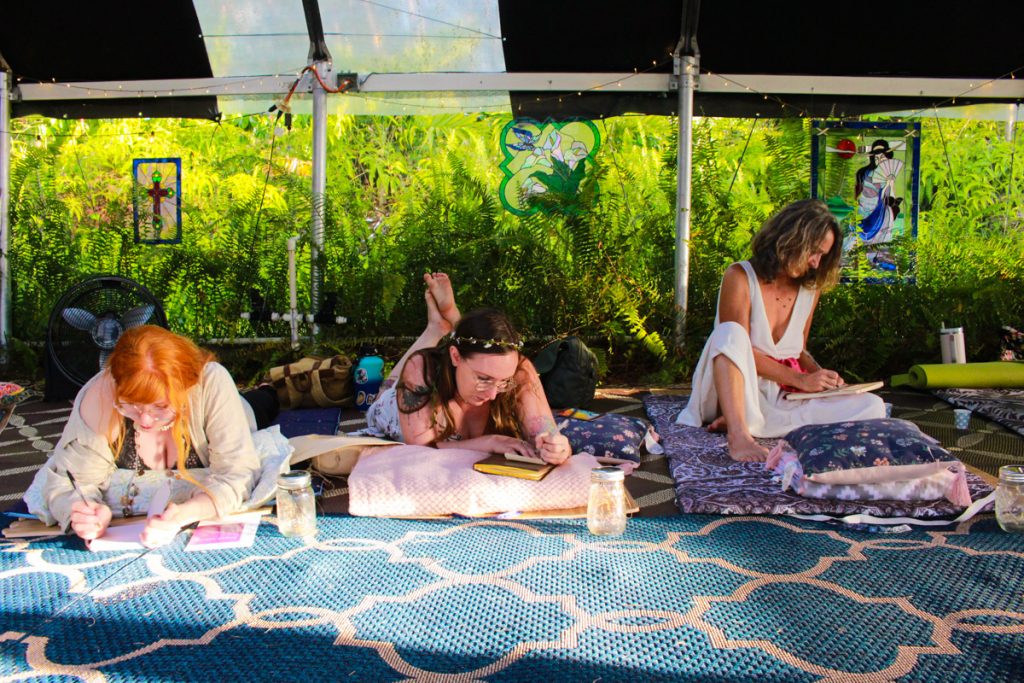

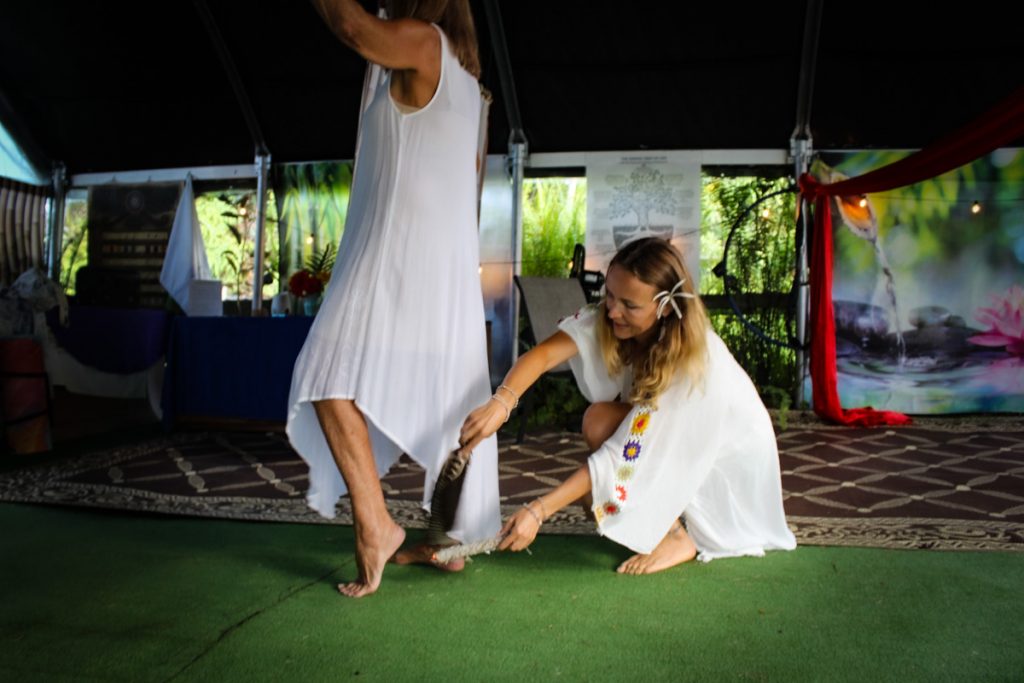
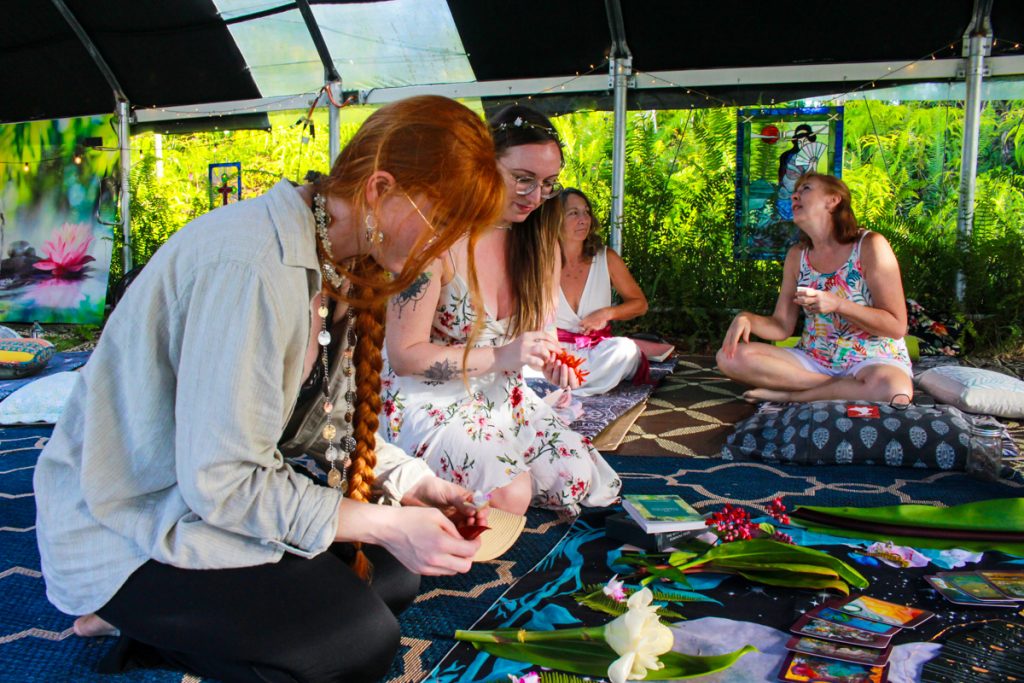
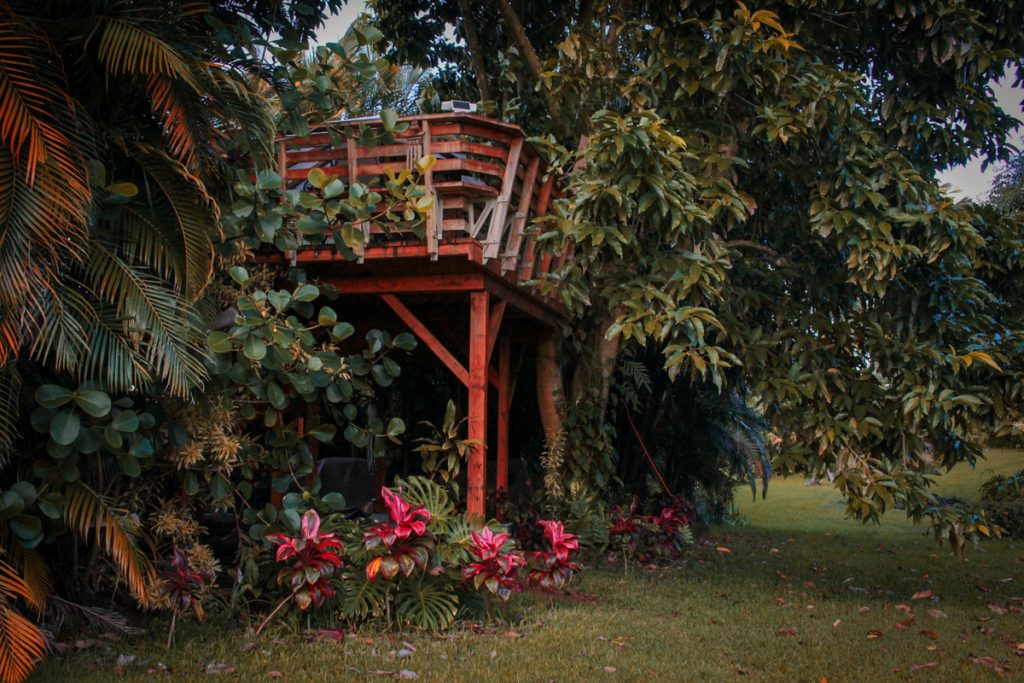
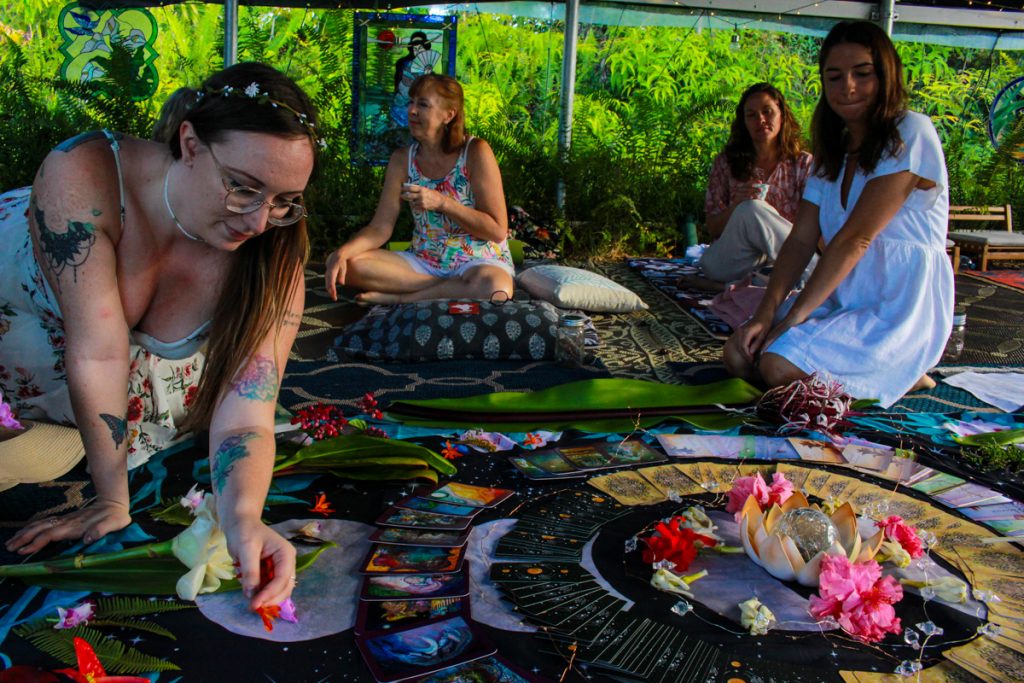
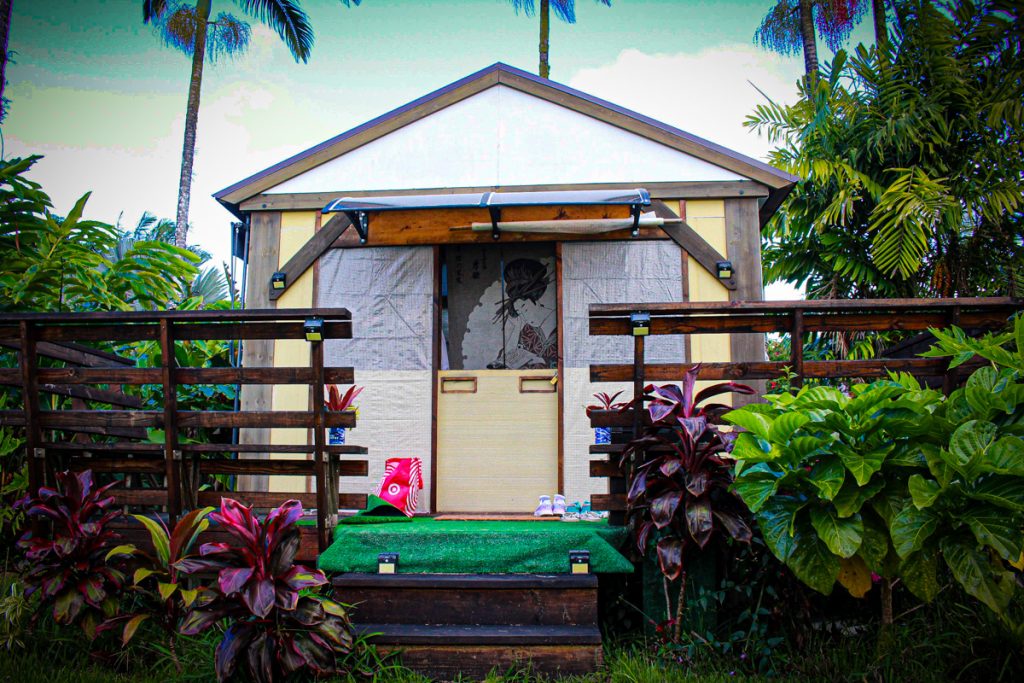
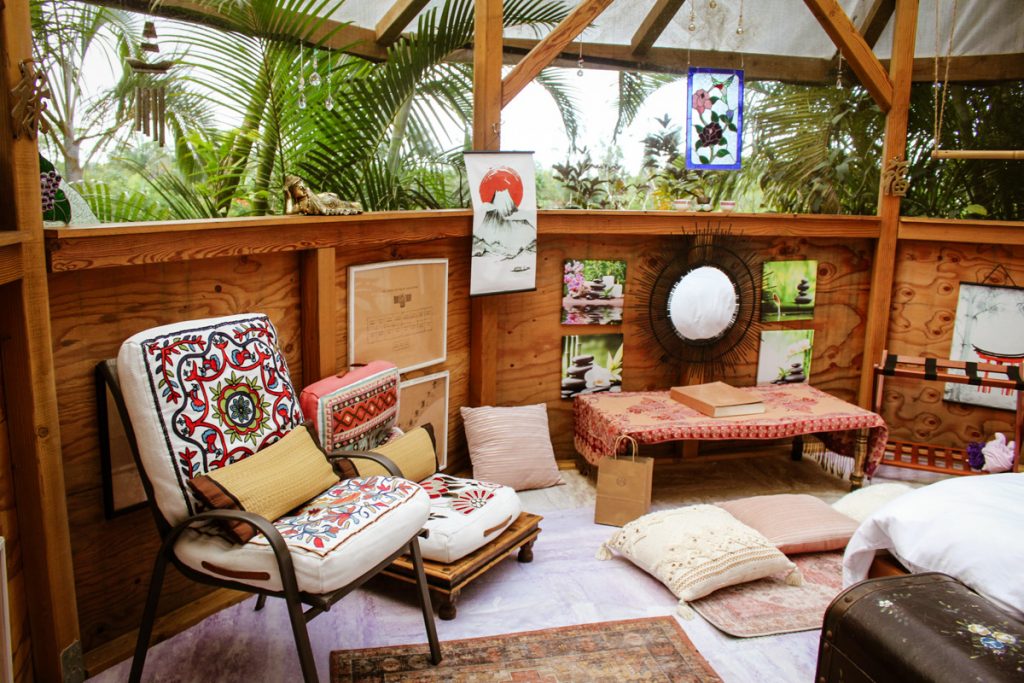
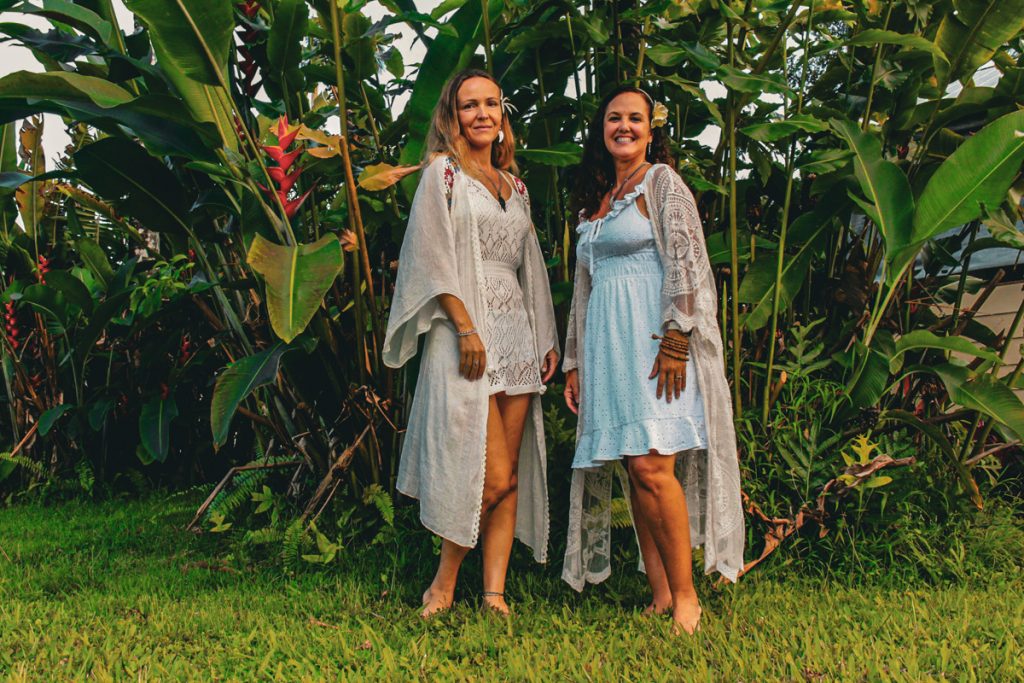










_1770333123096.webp)


